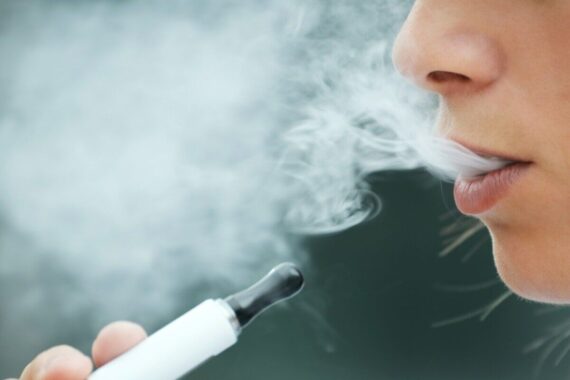Nearly one in ten children vaping despite fall in cigarette smoking rates

More children aged 11-15 are now vaping and using e-cigarettes than in previous years, despite a fall in the number of children drinking, smoking cigarettes and taking drugs, official figures show.
NHS Digital statistics published last week showed that 9% of the age group were classified as e-cigarette users in 2021, 50% higher than in 2018 when only 6% of young people were vape users.
However, the number of young people taking drugs, drinking alcohol and smoking cigarettes has fallen. In 2021, only 3% of pupils were cigarette smokers – down from 5% in 2018 – and those who said they had smoked at least once fell from 16% to 12%.
Likewise, the number of young people who said they have taken drugs at least once fell from 24% to 18%, and only 12% said that they had taken drugs in the last year.
The study also found that the most common drug for students to have taken was cannabis, while the number of students who had taken class A drugs remained consistently low at 2 to 3%.
While the number of students vaping has risen across the board, some groups showed more significant levels, with 18% of all 15-year-olds using vapes.
Girls were even more prone to vaping, with 21% of all 15-year-old girls vaping, according to the data.
Meanwhile, the NHS Digital data also revealed concerns over students’ quality of life, particularly for those who use substances of any kind.
It showed that 46% of 15-year-old girls reported a low level of happiness and 51% reported a high level of anxiety on the previous day.
And of those interviewed, 18% who had not recently smoked, taken drugs or drunk alcohol experienced low levels of ‘life satisfaction’.
But among students who had recently done all three of these things, a staggering 57% reported low levels of ‘life satisfaction’. More than a third (35%) of those who had recently done one of the three reported the same.
However, it is not clear from the data whether the drugs, smoking and alcohol are a cause or symptom of low levels of ‘life satisfaction’.
Last month, a study found that handing out vape starter kit vouchers on the NHS could help even the heaviest smokers quit for good, with 42% quitting within a month in a trial scheme.
It followed draft NICE guidance that last year recommended that GPs should offer advice on vaping as a way to help patients stop smoking, after an independent PHE report showed that smokers who used vaping as part of a quit attempt have some of the highest success rates.
Meanwhile, a 2019 study concluded that there is limited evidence that e-cigarettes promote smoking in teenagers.
A version of this story was first published by Pulse’s sister title Nursing in Practice
Visit Pulse Reference for details on 140 symptoms, including easily searchable symptoms and categories, offering you a free platform to check symptoms and receive potential diagnoses during consultations.
Related Articles
READERS' COMMENTS [1]
Please note, only GPs are permitted to add comments to articles










Class A Britain. Looking healthy all round.